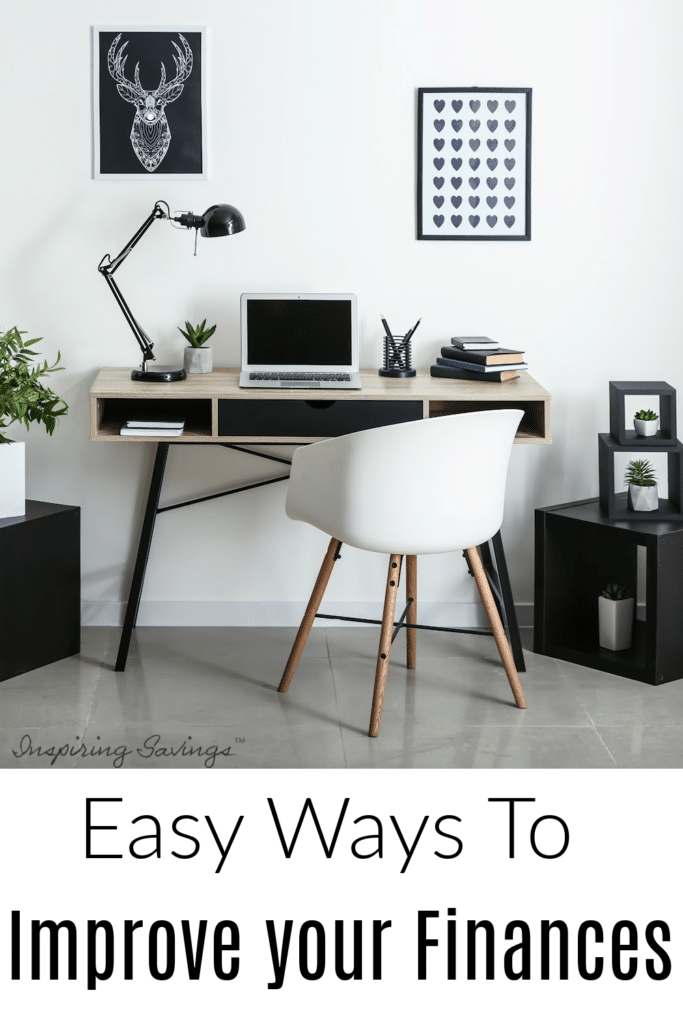6 Simple Ways to Manage Money Better
Improving your financial health will spare you stress later. These great seven tips will help you to improve your finances.
6 Simple Ways to Manage Money Better
You spend a lot of time taking care of yourself by eating healthy, exercising, and all the self-care things women do to feel and look their best. But have you ever stopped to think about how to take care of your money?
Millions of people suffer from crushing debt. Sadly, most of this massive debt has been accumulated because of insufficient financial habits. Habits that most likely could have been avoided. If you want to live debt-free, managing your finances is key.
Let’s get you set up on the path to success to improve your finances. Keep in mind, everything comes down to a lifestyle change. Similar to a diet change. Every small step can lead you to outstanding success.
Thankfully, many tools can help. Below is a list of seven things that can help you improve your finances.
Understand Current Situation
Before you can start planning to move forward, you need to understand your current situation and make a commitment to change. Moving ahead in your commitment to managing your finances may be a surprise to you.
Whether a realization you need to cut back a lot or just make a few committed decisions until you meet your goal. Whatever discover, the goal is to maintain and keep within your budget. First, I can’t stress this enough, make lists. One for the grocery store, one for bills to pay, one for your goals—it’s amazing how much lists help you and your money gets organized.
Laying it out helps you to become better organized.
Create a Personal Budget
While it may seem too obvious, most people don’t bother to draft a monthly budget. A budget is the best tool that will help you live within your means. You can quickly identify the amount of money you have coming in and the expenses that need to be paid.
For example: You may set aside $100 a month for clothes. Or you may decide to spend $50 on clothes instead. You can use the rest of the money to pay bills or to save for something else.
By maintaining a budget, you will prevent the creation of any new debt and ensure you have a little left over for things you enjoy. Having allotted money for fun within your budget is a must. You can narrow down your spending, but eating out at restaurants and entertainment should be included.
Create an Emergency Fund
Something that can completely wreak havoc on a person’s budget is an unexpected expense. Life happens… things happen and they all happen unexpectedly. You will appreciate having an emergency fund when you need it.
And let’s hope that you don’t. Being wise means having at least 3-6 months of savings. This amount will cover your expenses should you ever lose your job, become ill, or have another type of emergency. Whatever the case, you should have at least two savings accounts specifically for emergency expenses.
One should be for medical expenses and the other for miscellaneous expenses like car repairs or plumbing work. One of the first steps in getting out of debt is to give yourself a way not to go back into or further into debt.
Consider Debt Counseling Services
Certain people may have so many bills and so much debt that they feel trapped. It may tempt them to file for bankruptcy. However, bankruptcy can ruin your credit and result in losing most of your assets. A better choice is a debt counseling service.
Such a service can help you manage your debt and negotiate with creditors to make sure paying your bills on time is feasible again.
Pay With Cash
Making purchases with cash as opposed to credit can help ensure that you don’t accrue debt. While you may need a credit card to make certain purchases and maintain a healthy credit score, try to make as many purchases as you can with cash.
Getting your finances back in order will not happen overnight.
However, if you make an effort to improve your financial habits and better track your expenses, you are certain to get your financial house back in order much quicker.
Work Hard
Don’t let the credit cloud hang over your head! Work hard to pay off all credit cards and cut those cards up. If you’re not paying off your credit card balance each month, you’re overpaying for the purchases you charge on your cards.
While there isn’t one right way to pay off debt, doing it is the best! A popular strategy is to pay off the credit cards with the highest interest rate.
As you direct your larger payments toward the balances with higher interest rates, you should continue to make the minimum payments on your other accounts. When the balance on that account is zero, put the money you were using to pay it off toward the next account with the highest account.
Let’s not give credit card companies more of your hard-earned money.
Other Ways To Improve Your Finances
7 Smart Ideas To Take Control of Your Money
Teaching Kids Money Skills Made Fun and Easy
Surefire Ways To Get Your Budget On Track
This post may contain affiliate links or sponsored content. Disclosure Policy










One Comment